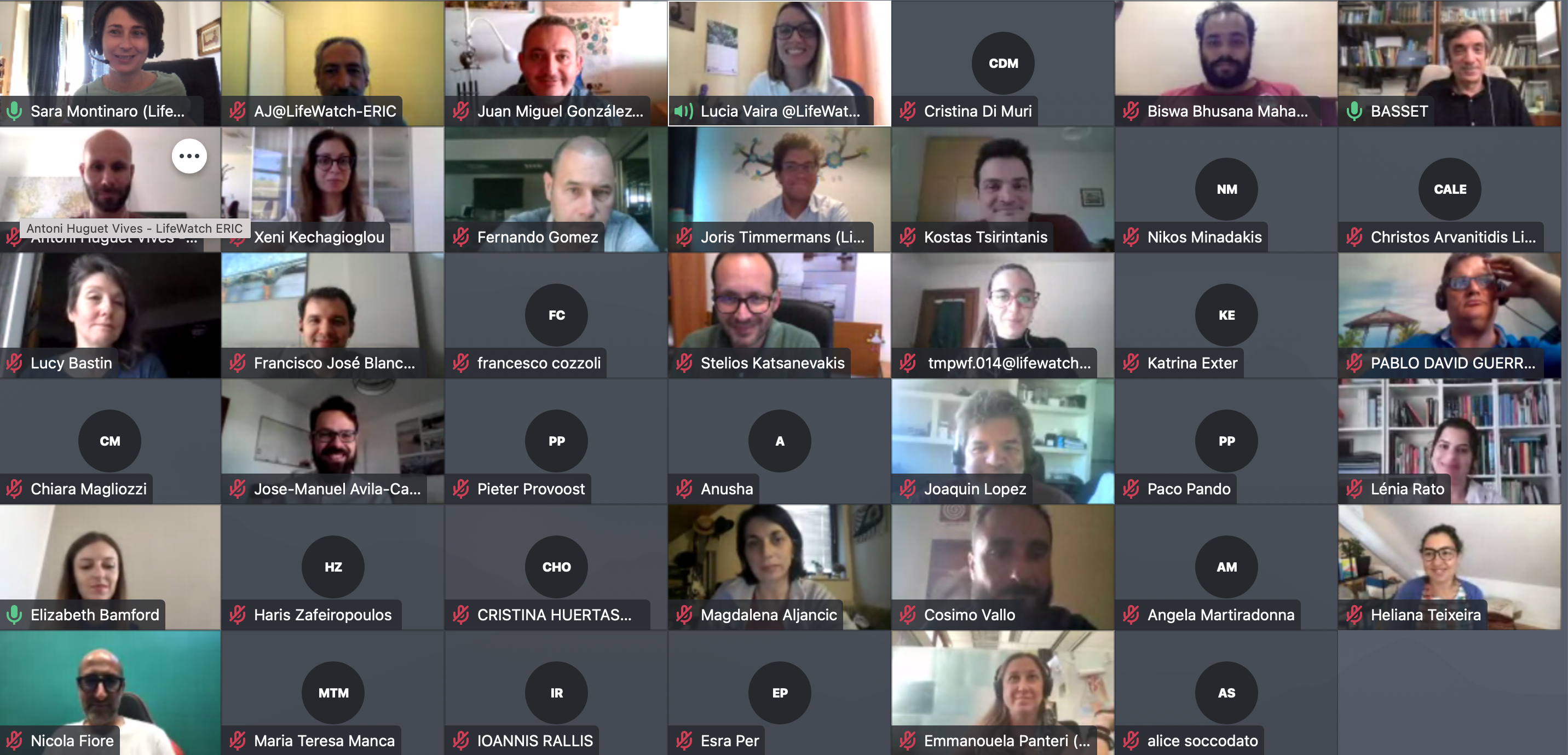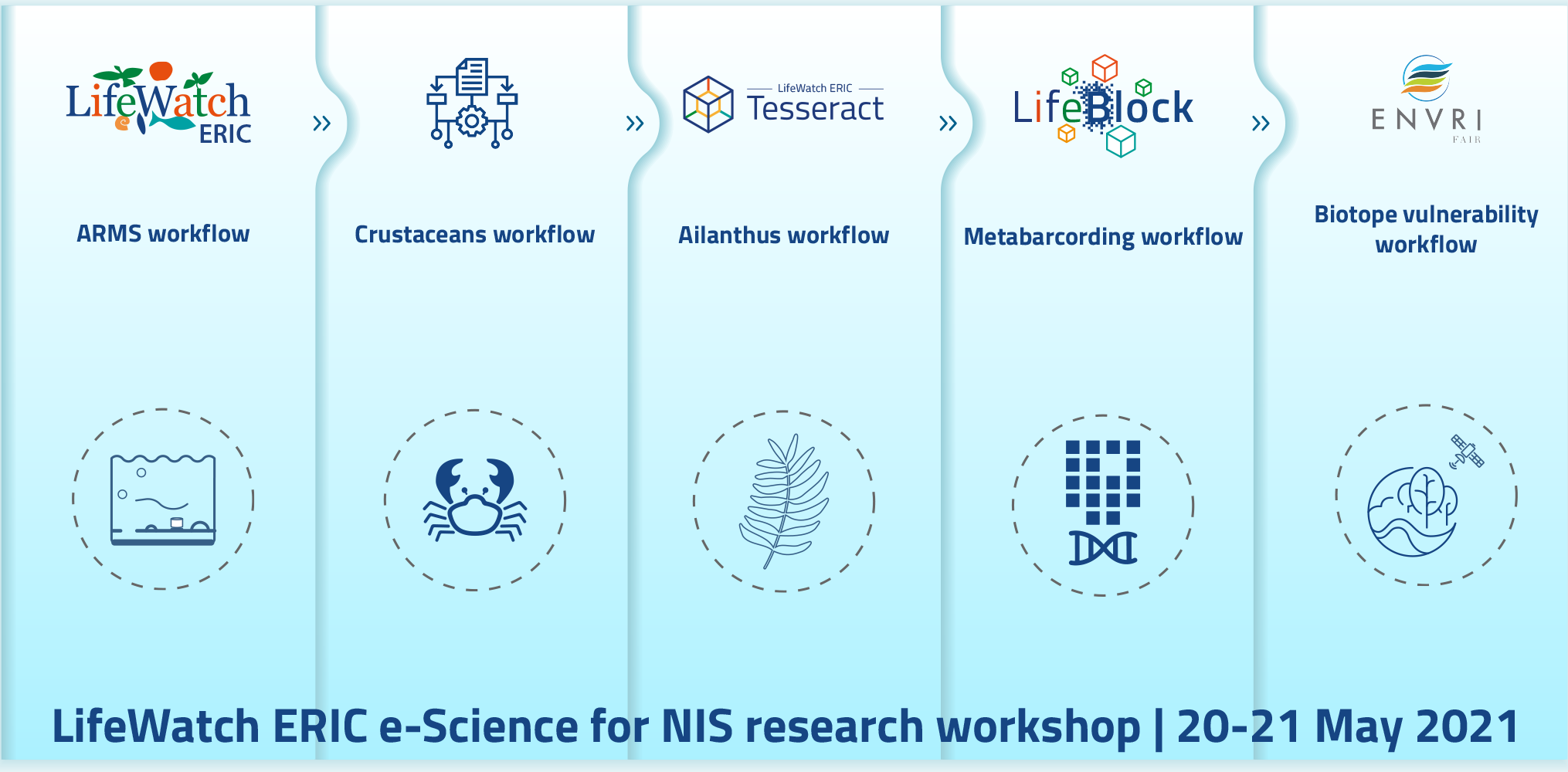On Friday 4 June 2021, as a follow-up to the successful e-Science for NIS Research Workshop on 20-21 May, LifeWatch ERIC gave researchers the opportunity to try out LifeWatch ERIC-developed software at a Hands-on Session. It marked the debut of key tools built by LifeWatch ERIC as part of its Internal Joint Initiative (IJI) in its quest to facilitate open access data in the domains of biodiversity and ecosystem research.
All training resources, including presentations, demos and manuals are available through the LifeWatch ERIC Training Platform. (Please note, those who missed out on the Session can find the relevant materials simply by following the link to the training programme and creating an account).
After an introduction from CTO and ICT-Core Director Juan Miguel González-Aranda, together with Service Director Alberto Basset, the floor was given to technical staff, Lucia Vaira, Xeni Kechagioglou, Antoni Huguet Vives, Nikos Miandakis and Antonio José Saénz Albanés, to explain and demonstrate the Metadata Catalogue and the Tesseract VRE, which was illustrated using the Crustaceans Workflow (presented at the Workshop on 20 May). After the presentations and demonstrations, participants were given the opportunity to try the services and workflows for themselves, interacting with the trainers who provided guidance and feedback.
The session was brought to a close with input from Juan Miguel González-Aranda, who reiterated the importance of continued feedback and exchange with the scientific community in order for LifeWatch ERIC to refine and improve its services. CEO Christos Arvanitidis then thanked everyone who took part, noting that the Session was just the beginning of the results LifeWatch ERIC has to showcase after its first five years of hard work alongside dedicated collaborators. He also highlighted that LifeWatch ERIC is leading an important Work Package as part of the EOSC Future project, and how the efforts of everyone involved will ensure that LifeWatch ERIC services can be deployed on the EOSC platform, benefiting a wider audience than ever before.

